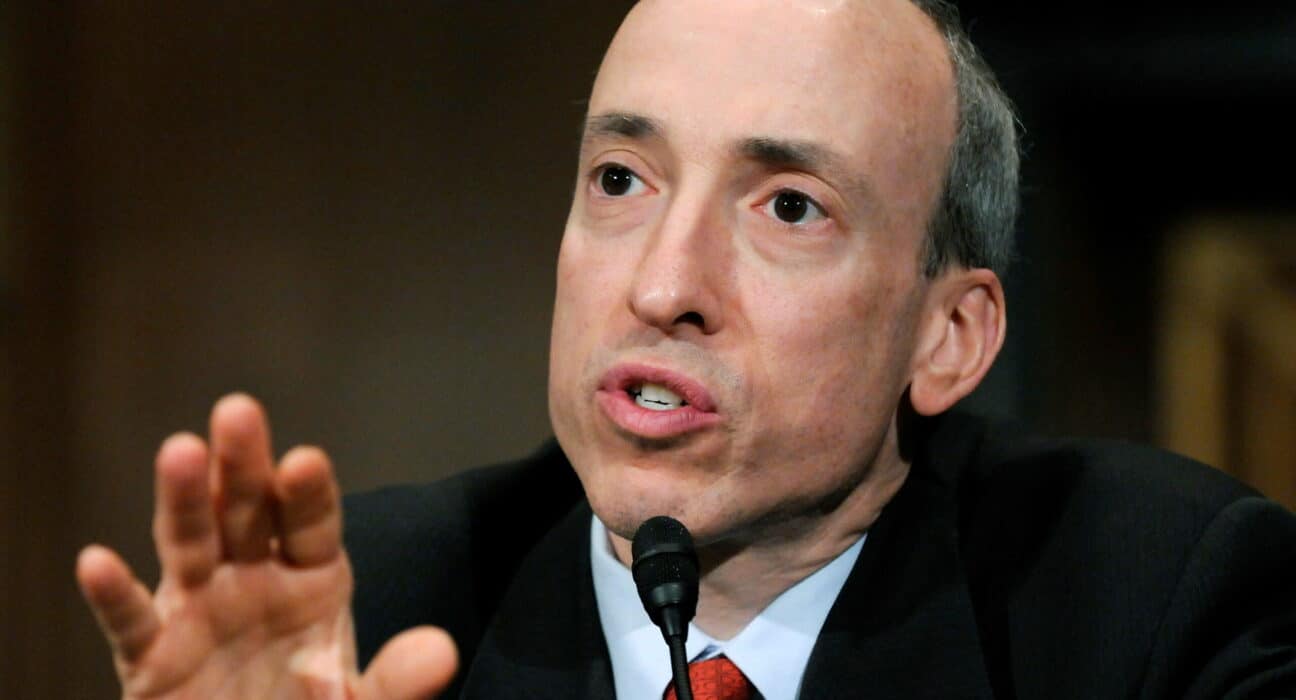Ever wondered what the top U.S. financial watchdog thinks about the booming world of crypto? Well, Gary Gensler, the head of the Securities and Exchange Commission (SEC), recently shared his insights with the European Parliament. Let’s dive into what he had to say about crypto’s global impact, environmental footprint, and the ever-evolving landscape of DeFi.
Gensler Takes the Stage in Europe: Why It Matters
On September 1st, Gary Gensler addressed the European Parliament’s Economic and Monetary Affairs Committee. His message underscored the transformative power of financial technology, comparing it to the dawn of the internet in the 90s. Think about it – the internet reshaped how we live and work, and Gensler believes crypto has the potential for similar seismic shifts.
He highlighted the truly global nature of the cryptocurrency market, a staggering $2.1 trillion ecosystem operating 24/7, without geographical boundaries. This interconnectedness presents both exciting opportunities and unique challenges for regulators worldwide.
Crypto’s Carbon Footprint: A Growing Concern?
While Gensler has consistently advocated for crypto regulation, his discussion about the environmental impact of crypto assets broke new ground. Finnish lawmaker Eero Heinäluoma raised a critical point: Bitcoin’s energy consumption surpasses that of entire countries like the Netherlands and Sweden, even overshadowing the greenhouse gas emission reductions achieved by electric vehicles. That’s a powerful comparison!
Gensler acknowledged this as a “significant challenge.” However, he also pointed to the increasing adoption of more energy-efficient Proof-of-Stake (PoS) based networks. This suggests a potential shift where environmental concerns will increasingly focus specifically on Bitcoin’s Proof-of-Work mechanism as PoS gains more traction.
DeFi: Innovation with Inherent Risks?
Decentralized Finance (DeFi) was another key topic. Gensler stressed the importance of establishing robust public policy frameworks. The goal? To foster innovation in crypto assets and DeFi while simultaneously ensuring strong investor safeguards. It’s a delicate balancing act.
Here’s a breakdown of Gensler’s perspective on DeFi:
- Direct Access, Direct Risks: DeFi platforms offer millions of investors direct access to financial protocols, eliminating traditional intermediaries like brokers.
- Fraud and Abuse Concerns: Gensler cautioned that the DeFi space has been “rife with fraud, frauds, and abuse.”
- Investor Vulnerability: He emphasized the lack of “clear investor protections duties on these platforms,” leaving the investing public potentially exposed.
Essentially, while DeFi promises a more accessible and potentially efficient financial system, the current lack of regulatory oversight presents significant risks to investors.
Key Takeaways from Gensler’s Address
So, what are the main points to remember from Gensler’s conversation with the European Parliament?
- Crypto is a Global Force: Its borderless nature requires international cooperation on regulation.
- Environmental Impact Matters: The energy consumption of certain cryptocurrencies is a serious concern.
- DeFi Needs Guardrails: While innovative, DeFi platforms require careful regulation to protect investors.
- Balancing Innovation and Protection: The challenge for regulators is to encourage growth while mitigating risks.
Looking Ahead: A Collaborative Approach to Crypto Regulation
Gensler’s appearance before the European Parliament underscores the growing recognition that cryptocurrency regulation is not a national issue, but a global one. As the crypto landscape continues to evolve at breakneck speed, open dialogues and collaborative efforts between international regulatory bodies will be crucial in shaping a future where innovation can thrive alongside robust investor protection. The conversation has begun, and the world is watching closely.
Disclaimer: The information provided is not trading advice, Bitcoinworld.co.in holds no liability for any investments made based on the information provided on this page. We strongly recommend independent research and/or consultation with a qualified professional before making any investment decisions.


